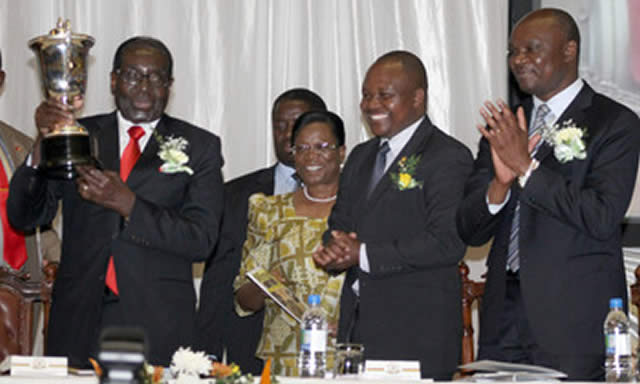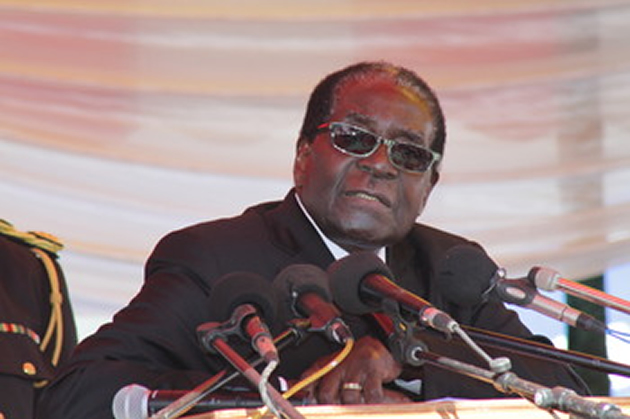Mixed reactions to Fiscal Policy Review


Zvamaida Murwira Senior Reporter—
Legislators, bankers and economic experts have expressed mixed views on the Mid-Term Fiscal Policy Review statement presented by Finance and Economic Development Minister Patrick Chinamasa yesterday, with some giving thumbs up while others expressed reservations. Minister Chinamasa introduced a raft of measures aimed at raising resources for the Government.
Some of the measures include raising excise duty on diesel and petrol by five cents each to 30 cents and 35 cents per litre with effect from today. Furthermore, excise duty of 5 percent will also be levied on airtime for voice and data on the same day while an import duty of 25 percent will be imposed on mobile handsets with effect from October 1, 2014.
The measures also include increase in customs duty on both new and used motor vehicles and customs duty on blankets imported as raw materials, with effect from October 1.
Reserve Bank of Zimbabwe Governor, Dr John Mangundya said he was happy with the fiscal measures that were put in place by Minister Chinamasa as they were consistent with what the country intended to achieve.
“It’s quite positive, it addresses the issue of production, which we also raised in our monetary policy statement. He has also introduced instruments to contain unnecessary products into Zimbabwe. On taxation, it is something that people never like but it is necessary for Government to enhance revenue so we need to look at it with a positive mind,” said Dr Mangundya.
“On demonetisation, it will increase confidence, amnesty will give people time for introspection, so the statement is consistent with what we have been talking about.”
Finance and Economic Development portfolio committee chairperson and Mutoko South MP Cde David Chapfika (Zanu-PF), said the policy measures were consistent with Zim-Asset, Government’s economic blueprint.
“The policy is realistic and practical. It is consistent with Zim-Asset, which says let’s utilise the resources that are within our control, which is the land. If we are to import food, we are undermining the resettled farmers. If you look at the goods the minister is discouraging from importation it is mostly agro-based foodstuff, mealie-meal and you name it, so from that point it is pragmatic,” said Cde Chapfika.
He defended the tax measures introduced saying that would stimulate local production and hence the measures were indeed pro-poor.
“As long as you are importing, you indirectly are exporting labour, simple economics will tell you that,” he said.
Former Finance Minister in the inclusive Government and Harare East MP, Mr Tendai Biti (MDC-T), said the policy measures would reverse all the gains of the inclusive Government as it was against the poor.
“All the fiscal measures were aimed at controlling; the cars, cellphones, food you name it. All what it does is that it will simply make capital leave Zimbabwe. I expected a buoyant fiscal policy that would encourage production. On the contrary, we saw a fascist anti-poor policy that will encourage capital flight and that will further the suffering of our people,” said Mr Biti.
Hatfield MP, Dr Tapiwa Mashakada (MDC-T), said the fiscal policy statement missed issues affecting people and showed that the Government had no clue on how to resolve the economic challenges.
“You cannot ban imports when your local industry is not yet ready. You actually create shortages, you must allow your industry to improve and grow and ban gradually especially food. You cannot ban blankets because they are used by ordinary people,” said Dr Mashakada who was Minister of Economic Planning and Investment Promotion in the inclusive Government.
He said people expected to hear how issues of electricity, housing, youth unemployment and liquidity crunch would be addressed.
“We are going to have a bleak Christmas this year,” said Dr Mashakada.










Comments